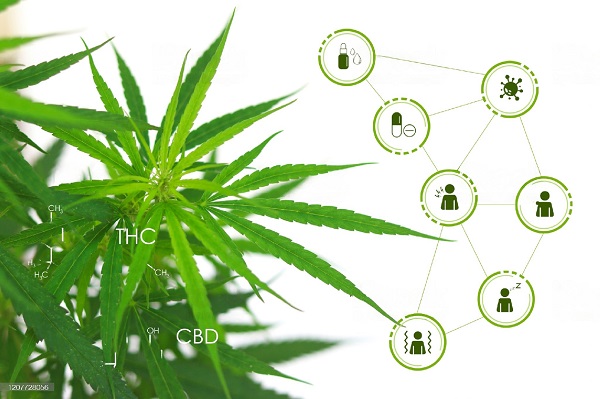In recent years, CBD (cannabidiol) has emerged as a popular remedy for various ailments, including pain management. Among the plethora of CBD products available, CBD gummies have gained considerable attention due to their convenience and discreet consumption. But amidst the hype, a pertinent question arises: do CBD gummies genuinely alleviate pain, or is it merely a marketing gimmick? This article delves into the science behind CBD edibles for pain management to determine whether their efficacy is myth or reality.
Understanding CBD and Pain
Before exploring the effectiveness of CBD gummies for pain relief, it’s essential to understand how CBD interacts with the body. CBD is one of over a hundred cannabinoids found in the cannabis plant. Unlike its cousin THC (tetrahydrocannabinol), CBD is non-psychoactive, meaning it doesn’t produce the “high” typically associated with cannabis use.
The human body has an endocannabinoid system (ECS), comprising receptors scattered throughout the brain, nervous system, and immune system. The ECS plays a crucial role in regulating various physiological functions, including pain perception, inflammation, and mood.
The Science Behind CBD’s Analgesic Effects
CBD interacts with the ECS, primarily by binding to cannabinoid receptors known as CB1 and CB2 receptors. While CB1 receptors are predominantly found in the brain and central nervous system, CB2 receptors are abundant in immune cells and peripheral tissues.
Studies suggest that CBD’s analgesic effects are mediated through several mechanisms. Firstly, CBD has been shown to inhibit the release of neurotransmitters involved in pain signaling, such as glutamate and serotonin. By modulating these neurotransmitter systems, CBD may help reduce the perception of pain.
Secondly, CBD possesses anti-inflammatory properties. Chronic inflammation is often associated with persistent pain conditions such as arthritis and neuropathy. CBD’s ability to suppress inflammatory responses by targeting immune cells and cytokines may contribute to its pain-relieving effects.
Moreover, CBD is known to interact with other receptors and ion channels implicated in pain modulation, such as transient receptor potential (TRP) channels. Activation of TRP channels can influence pain sensation and neuronal excitability, and CBD’s modulation of these channels may contribute to its analgesic properties.
The Case for CBD Gummies in Pain Management
CBD gummies offer a convenient and discrete way to consume CBD, making them an attractive option for individuals seeking pain relief. Unlike traditional forms of CBD administration, such as tinctures or vape oils, gummies are pre-dosed and come in various flavors, making them appealing to a broader audience.
One of the primary advantages of CBD gummies is their sustained release of CBD into the bloodstream. When ingested, CBD in gummies undergoes first-pass metabolism in the liver before entering systemic circulation. This delayed onset of action and prolonged duration of effects may provide more consistent pain relief compared to other forms of CBD administration.
Furthermore, CBD gummies are easy to incorporate into daily routines, making them a convenient option for individuals managing chronic pain conditions. The discreet nature of gummies allows users to administer CBD without drawing attention in social or professional settings.
Evaluating the Evidence
While anecdotal reports and testimonials abound regarding the efficacy of CBD gummies Canada for pain management, clinical evidence supporting their use is still limited. Most of the existing research on CBD’s analgesic effects has focused on other forms of administration, such as oral tinctures or topical creams.
However, a handful of studies have investigated the efficacy of oral CBD formulations, albeit not specifically gummies, for pain relief. A 2018 review published in Frontiers in Pharmacology concluded that CBD shows promise as a therapeutic agent for various pain conditions, including neuropathic pain, arthritis, and fibromyalgia. However, the authors noted the need for further large-scale clinical trials to establish optimal dosing regimens and efficacy profiles.
Similarly, a randomized controlled trial published in the European Journal of Pain in 2020 found that oral CBD administration significantly reduced pain and improved quality of life in patients with peripheral neuropathy. While this study did not specifically examine CBD gummies, it provides evidence supporting the efficacy of oral CBD formulations for pain management.
Conclusion
In conclusion, while the use of CBD gummies for pain management holds promise, further research is needed to substantiate their efficacy conclusively. The existing scientific evidence suggests that CBD may offer potential benefits like anxiety relief for alleviating pain through its interactions with the endocannabinoid system and modulation of inflammatory pathways.
However, it’s essential to approach CBD gummies Canada with realistic expectations and to consult with a healthcare professional before incorporating them into your pain management regimen. Factors such as individual response, dosage, and underlying medical conditions can influence the effectiveness of CBD gummies.
Ultimately, while CBD gummies may not be a panacea for pain, they represent a promising avenue for natural relief that warrants further exploration and investigation.




